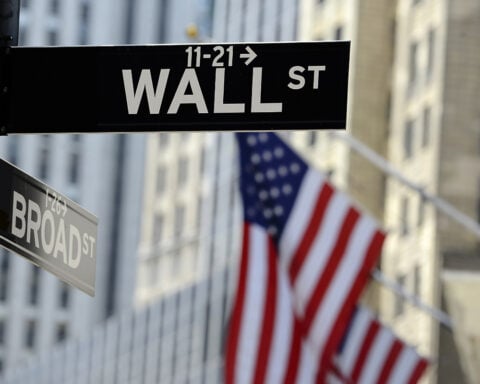As financial markets closely monitor the latest developments, Nvidia, BHP, Ryanair, and Brent Crude oil are making significant waves. These trending tickers reflect diverse sectors, from technology and mining to aviation and energy, each contributing to a dynamic economic landscape. Here’s a closer look at the latest from these key players.
Nvidia: Dominating the AI Market
Nvidia is set to report impressive financial results, positioning itself to exceed previous performance benchmarks. The tech giant is expected to announce a remarkable 139% jump in adjusted earnings per share (EPS) and a 113% increase in revenue for the quarter. These projections indicate an EPS of $0.65 on revenues of $28.7 billion, a substantial rise from the same period last year when Nvidia reported an EPS of $0.27 and revenues of $13.5 billion.
The company maintains its position as the world leader in artificial intelligence (AI) chip design and software, controlling a significant share of the market—estimated to be between 80% and 95%. Nvidia’s dominance is expected to continue with the rollout of its next-generation Blackwell line of chips. The tech sector is keenly awaiting Nvidia’s quarterly results, which could influence market sentiment and underscore the ongoing importance of AI technologies in driving growth and innovation.
Nvidia’s stock performance reflects this optimism, with shares up more than 163% year to date and 60% over the past six months. In comparison, its rival AMD has seen more modest gains, with its stock price rising 9% year to date but experiencing a 14% decline over the last six months. Nvidia’s cutting-edge GPUs, particularly those built on its Hopper architecture, continue to drive high demand, solidifying the company’s market position.
BHP: Shifting Focus Amid Economic Challenges
BHP, the mining giant, is recalibrating its strategy as its primary iron ore business feels the impact of China’s economic slowdown. The company is looking to boost copper production to offset reduced demand for steelmaking iron ore. This shift comes as BHP anticipates continued low Chinese steel demand through 2024, a consequence of decreased construction activity in China, where the majority of BHP’s iron ore is consumed.
While BHP’s revenue for the fiscal year ending in June increased by 3% to $55.7 billion, and its underlying net profit grew by 2% to $13.7 billion, the company faced significant financial setbacks. Total profit attributable to shareholders fell by 39%, driven by a $2.7 billion write-down of its Australian nickel operations and a $3.8 billion charge related to a dam collapse in Brazil. As a result, BHP reduced its full-year dividend by 14% to $1.46, reflecting increased investments in new projects. Despite these challenges, BHP shares rose 1.5%, showing investor confidence in the company’s long-term strategy.
Ryanair: Stabilizing Fare Expectations
Ryanair, Europe’s largest airline, saw its shares rise over 6% after CEO Michael O’Leary provided reassurance about fare reductions. Initially, the airline had warned of potential fare drops exceeding 10%, which led to a 15% drop in its share price last month. However, O’Leary indicated that any decreases would now be limited to around 5%, alleviating investor concerns.
The airline experienced some softening of fares in April, May, and June, but this trend has since stabilized. Ryanair is also encountering less price resistance for last-minute fare increases, suggesting a more balanced pricing environment moving forward. These developments are positive for Ryanair as it seeks to maintain its profitability while navigating fluctuating market conditions.
Brent Crude Oil: Prices Steady After Gains
Brent Crude oil prices have stabilized at around $81 a barrel following a 7% increase over three consecutive sessions, marking the sharpest rally since April last year. This surge was fueled by market expectations of potential interest rate cuts in the United States, spurred by recent comments from Federal Reserve Chairman Jerome Powell. The anticipation of easing monetary policy has bolstered the outlook for economic growth, thereby increasing oil demand.
Additionally, ongoing geopolitical tensions in the Middle East, particularly involving Israel and Iran, have raised concerns about potential disruptions to the global oil supply. Further supply constraints could arise from the potential closure of oil fields in Libya, which might remove more than a million barrels per day from an already tight market. With pressures mounting on both the supply and demand sides, there could be room for further increases in oil prices.
As these companies navigate the complexities of their respective markets, investors and analysts will continue to watch for shifts that could impact broader economic trends. The performance of Nvidia, BHP, Ryanair, and Brent Crude oil highlights the interconnectedness of global industries and the factors influencing their success.







